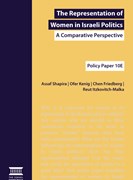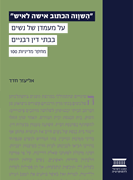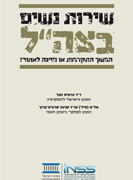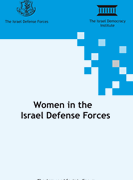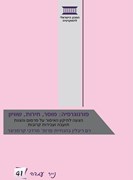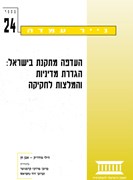

Publications Regarding Women
Articles

A Small but Insufficient Victory for Female Torah Scholars
Written By: Ayala Goldberg
A recent Supreme Court decision rules that the Chief Rabbinate must allow women to take the Halakhic exams it administers for the purpose of ordaining rabbis. While this does not mean they will be ordained as rabbis, this is good news for women in their struggle for the value of their Torah study to be recognized.

Who Will Protect the Vulnerable Parties in Religious Courts?
Written By: Adv. Anat Thon Ashkenazy
A bill expanding the powers of Israel's religious courts was approved for first reading in Knesset. This raises concerns about the rights of vulnerable population groups, such as women and low wage workers. As a Jewish and democratic state, it is not enough to say rights will be protect – there must be institutional protections.

ZERO Women Running Ministries: A Government Out of Step with the Law and the Public
Written By: Adv. Anat Thon Ashkenazy
Last week, it was announced that a man would lead Israel's Ministry of Social Equality—the ministry responsible for, among other things, gender equality. This, on its own, would not be problematic, but it leaves the total number of women Directors General of government ministries at zero. This lack of representation is not only misaligned with public opinion, it is also a blatant violation of a Supreme Court ruling and reflects disregard for the rule of law.

Public Opinion Survey on Representation of Women in Influential Roles Part I
Written By: Adv. Anat Thon Ashkenazy
A survey on women's representation conducted among men and women in Israel. Findings show that most (65%) consider equal representation when deciding on which party to vote for; 71% think the number of women in the Knesset, the government and in senior positions should be increased.

Women’s Representation in Israeli Politics: Analysis for 2025
Written By: Prof. Ofer Kenig
An analysis and international comparison of women's representation in the Israeli political arena.

Proposed Legislation Expands Permitted Gender Separation in Academia
Written By: Adv. Anat Thon Ashkenazy, Adv. Sapir Paz
While it’s important to facilitate the integration of Haredim into academia and the workforce, seperate graduate program for men and women can be harmful to the rights of women and often clashes with the law that prohibits gender-based discrimination in public places.

Chipping Away at Decades of Progress: Gender Segregation in Israel
Written By: Adv. Anat Thon Ashkenazy
The diminished number of women in decision-making positions in government, coupled with the increase in attempts to implement gender segregation, threatens the right to equality.

The Situation for Women in Israel: More Violence, Less Representation and Growing Exclusion from Public Service
Written By: Adv. Anat Thon Ashkenazy
Women in senior government positions are leaving their roles, the number of victims of domestic violence is rising, and the prevailing spirit from the government does not bode well. Now more than ever, there must be a call for immediate and fundamental change in placing women's rights at the top of the national agenda.
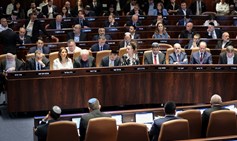
The Judicial Overhaul and Anti-Democratic Initiatives
Written By: Adv. Anat Thon Ashkenazy, Adv. Daphne Benvenisty
Judicial overhaul initiatives, along with other anti-democratic measures, have continued to be promoted by the government and the coalition in the Knesset. This document outlines the various actions taken in government that weaken the Israeli judiciary and democracy at large.
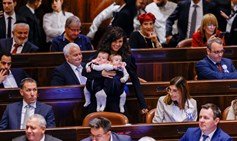
Women’s Representation in Israeli Politics: Analysis for 2024
Written By: Prof. Ofer Kenig
Between 1996 and 2015, there was a real improvement in women's representation in the Knesset. Since 2015, however, it seems this upward trend has stalled and female legislative representation is faltering, especially compared to other democracies.

Bordering Beliefs: Israel’s Sociopolitical Divide Between Liberal and Ultra-Orthodox Values
Written By: Adv. Edna Harel Fisher
In Israel, social borders, political demands and the status of women continue to underscore tensions between liberal democratic values and the conservative, ultra-Orthodox Jewish communities.
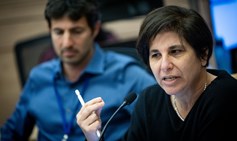
The Inexcusable Absence of Women in Israeli Ministry Leadership Roles
Written By: Adv. Anat Thon Ashkenazy
Minister of the Economy Barkat's decision to remove Adv. Michal Cohen from her role as Director of the Competition Authority compounds a two-pronged problem. On the one hand, the diminishing number of women in Ministry leadership roles, and on the other, increased political interference in professional authorities, risking their independence and professional standards.
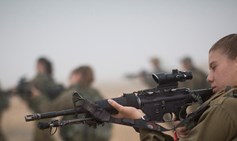
The Strongest Military in the Middle East Should have the Ability to Open Combat Roles to Women
Written By: Dr. Idit Shafran Gittleman
A broader public debate over the principle of equality is current in Israel and is one of the fundamental rights in a democracy - it should then be clear that the IDF must ensure gender equality - it is possible and must be done.
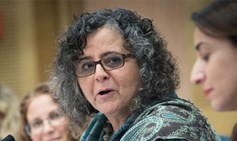
Arab Women Call Out to Arab Men: Let's Join Forces
Written By: Dr. Nasreen Haddad Haj-Yahya
Closing the gender gap is crucial to closing social and economic gaps overall - Arab men and women must work together towards this goal

Women, Go for It!
Written By: Dr. Idit Shafran Gittleman
The IDF, like every other state institution in Israel, is obligated to the principle of equality – meaning that any woman who is capable of doing so must be permitted to serve in elite combat units

Women’s Service in the IDF: Between a ‘People’s Army’ and Gender Equality
Written By: Dr. Idit Shafran Gittleman
Over the years and especially in recent decades, the concept of gender equality has also become relevant to the discussion of military service, and more and more roles have been opened up to women serving in the IDF. Dr. Idit Shafran Gittleman presents an overview of women in the IDF since its establishment.
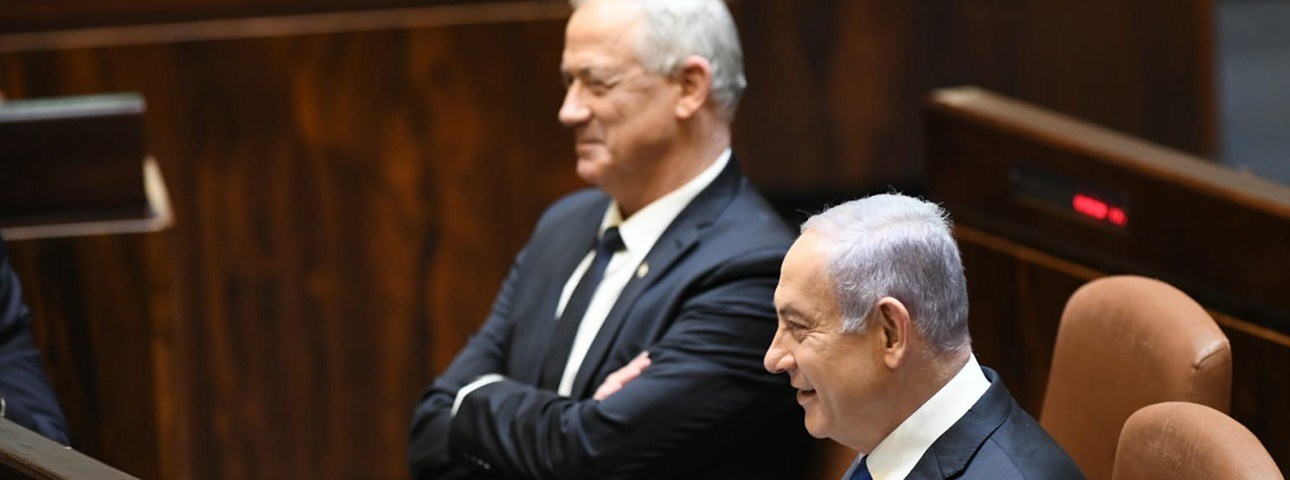
Israel’s 35th Government: A Portrait
Written By: Prof. Ofer Kenig
After 18 months of political deadlock, Israel’s 35th government was sworn in - and in many ways it's quite unique.
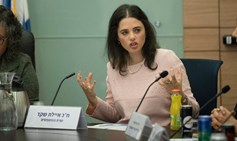
Women Representation in the 23rd Knesset
Written By: Dr. Assaf Shapira
After the party lists have been submitted Dr. Assaf Shapira analyzes expected representation of women in the 23rd Knesset based on the September 2019 elections

The Decade in Review: Women’s Service in the IDF
Written By: Dr. Idit Shafran Gittleman
The last decade has seen the most meaningful changes in gender equality and women’s service in the IDF since the State was established.
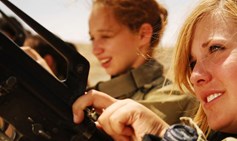
What Really Lies behind the Rabbis’ Directive on Modesty?
Written By: Dr. Idit Shafran Gittleman
What really lies behind the most recent rabbinical directive on modesty in the IDF - and how does it pits religious soldiers against IDF's core values to the extent of risking insubordination.
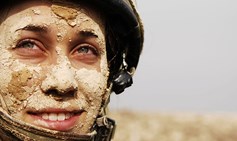
Defending Women’s Rights to Serve Equally
Written By: Dr. Idit Shafran Gittleman
Creating a gender-equal military is a complicated task, but the IDF must not forget its responsibility, nevertheless many Israeli soldiers have not been trained on gender equality says Idit Shafran Gittleman.
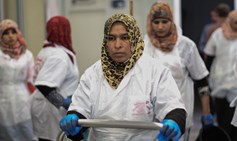
Arab Israeli Women Joining the Labor Force in Large Numbers
Written By: Dr. Nasreen Haddad Haj-Yahya, Aiman Saif, By: Linda Gradstein
Are these encouraging numbers the harbinger for positive change in Israeli society?
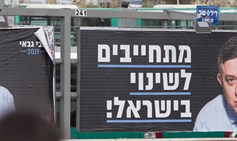
Behind Every Man Stands… Another Man
Written By: Adv. Alona Vinograd
The major parties have been turning a blind eye to women politicians, and their campaigns are the worse for it
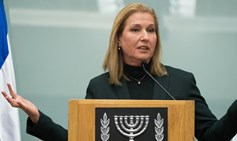
Israeli Politics is Still a (Mostly) Boys’ Club at the Top
Written By: Prof. Ofer Kenig
Despite record numbers in the Knesset, few females hold senior government posts — their absence leaves Israel worse off.
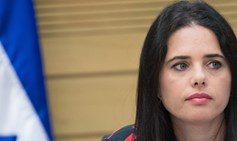
How Many Women Have Served in the Israeli Cabinet?
Written By: Prof. Ofer Kenig
The steady increase in the percentage of women in Israel's parliament has not been accompanied by a concomitant rise in their cabinet representation. In this article, IDI researcher Dr. Ofer Kenig argues that the new government that will be formed following the 2019 elections provides Israel with a golden opportunity to rectify this situation.
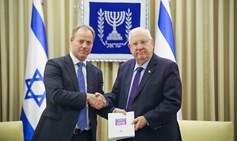
Presentation of the Israeli Democracy Index to the President of Israel
Written By: Yohanan Plesner
"Our central mission—and we see you as a partner in this—is to strengthen Israel’s democratic core in the spirit of the Declaration of Independence" says Yohanan Plesner in his address to President Reuven Rivlin.
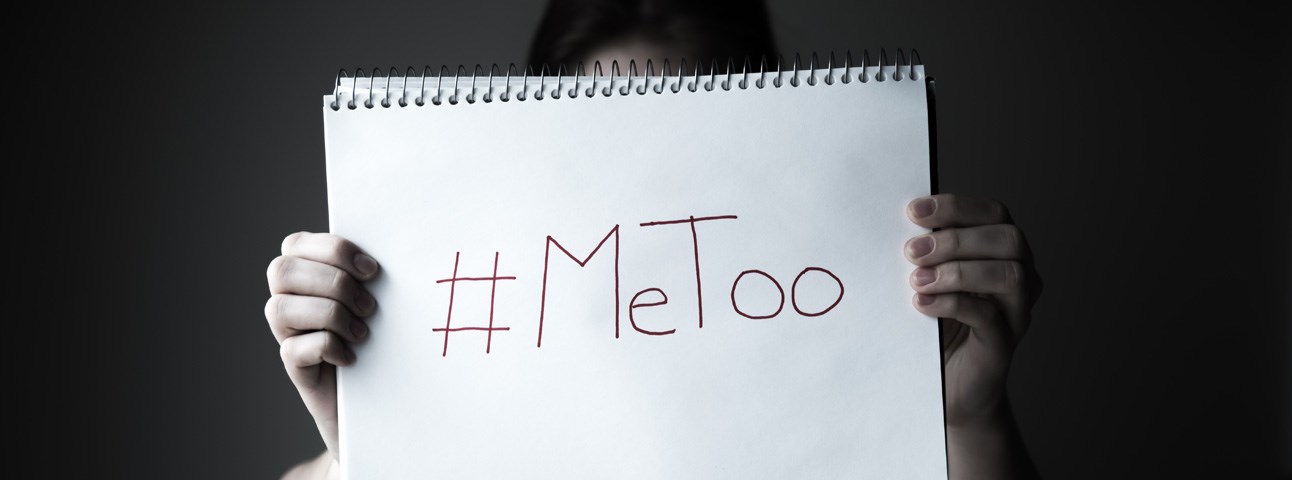
Is It a Very Scary Time for Young Men?
Written By: Prof. Tamar Hermann, Prof. Ephraim Yaar
The monthly Peace Index of the Israel Democracy Institute and Tel Aviv University finds that: 44% of Jewish and Arab Israelis agree with President Trump’s statement that “It’s a very scary time for young men” – the percentage among men who agreed was significantly higher than that among women.
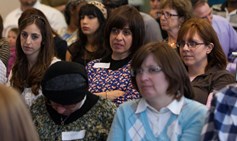
Integrating Women into Politics: Another Solution
Written By: Prof. Ofer Kenig, Dr. Chen Friedberg
The absolute exclusion of women from ultra-Orthodox parties keeps their specific interests from being addressed effectively in the public sphere.
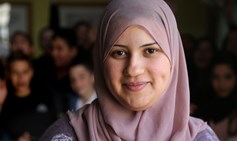
For Arab Women in Israel, It's Just Not Working
Written By: Dr. Nasreen Haddad Haj-Yahya
Arab women - around 10% of the total population of Israel - barely participate in the workforce, far below the employment rate of Arab or even ultra-Orthodox men. Why?
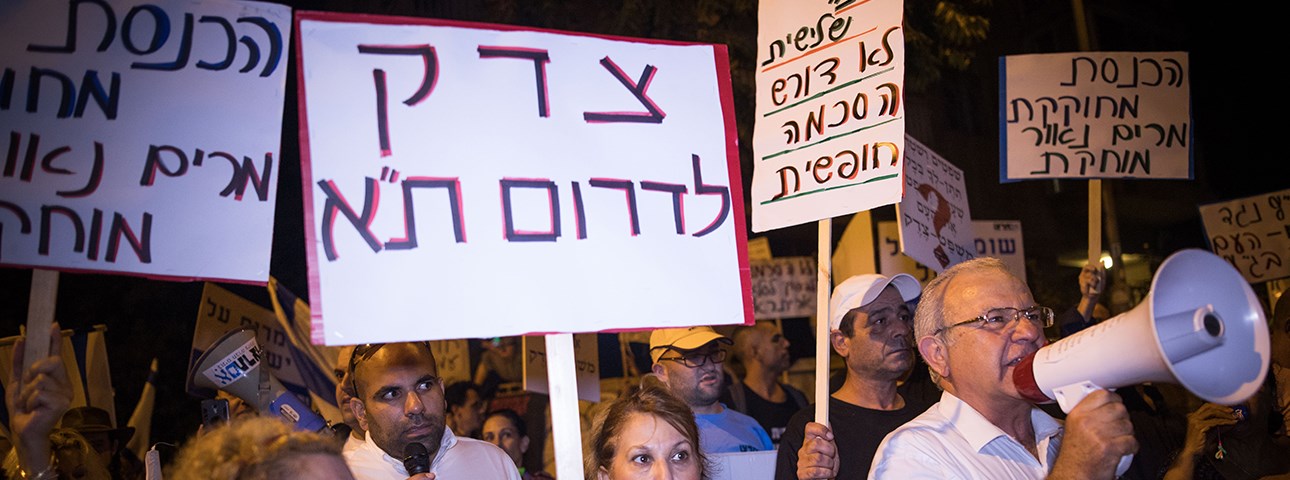
Israelis Support Deportation of Asylum Seekers
Written By: Prof. Tamar Hermann, Prof. Ephraim Yaar
66% of the Jewish public and half of the Arab public support the government’s decision to deport asylum seekers to African countries that are prepared to absorb them.

Women in the Military
Written By: Prof. Yedidia Z. Stern
Prof. Yedidia Stern: "These rabbis, who loudly extol the virtues of Jewish statehood, do not hesitate to drag the people’s army into the arena of conflict with their irresponsible statements."
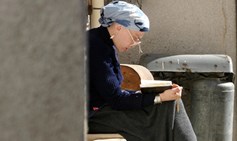
Haredi women lead change
Written By: Dr. Lee Cahaner
Are women leading the change in ultra-Orthodox society or are they preserving their unique way of life? Learn more about the tension between the possibilities that the modern world offers ultra-Orthodox women and the many complex challenges facing them.

5 Things You Must Know About the ultra-Orthodox Community in Israel
How many ultra-Orthodox live in Israel today? How many will watch this clip on the internet? How are ultra-Orthodox women transforming their community? How many are employed? What age to they get married?

Charedi Women Increasingly Having It All
Written By: Michele Chabin | The New York Jewish Week
Growing numbers of ultra-Orthodox women postponing marriage to pursue a career path, new study finds.

Status of Women in Israeli Politics: The Good, The Bad and The Road to Full Equality
Written By: Prof. Ofer Kenig
The impressive increase of women's representation in the Knesset has not translated into similar strides in other political spheres and senior executive positions.
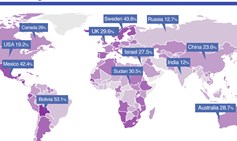
Women in Politics: 2017
There has been a substantial increase in the amount of women serving as Ministers of the Knesset since 1999.

New IDI Research for the Institute's "Haredi Women's Leadership:"
The project was done in collaboration with Kemach Institute and the JDC Haredi Employment Program
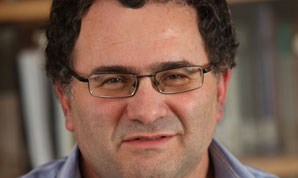
Israel’s Unraveling at the Western Wall
Written By: Yair Sheleg
Yair Sheleg, head of IDI's Religion and State program, argues that there are multiple forms of Jewish identity and that religious coercion should not be used to oppose a reality that history created.

Statement by IDI President Yohanan Plesner on the Advancement of the Mikveh Bill
Following today's advancement of the Mikveh Bill by the Knesset Plenum, IDI President Yohanan Plesner said, "The Mikveh Bill is not worthy of being included in the laws of Israel."
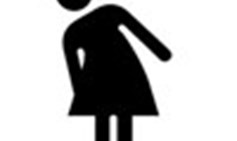
Women in Israeli Politics
Written By: Prof. Ofer Kenig
The number of women in Knesset has increased dramatically to five times what it was 25 years ago. The share of women in the Israeli Knesset is now almost 27%, making it higher than in the U.S. Senate (20%) or the House of Representatives (19.4%).
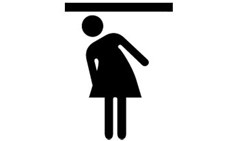
Women in Israeli Politics
Written By: Prof. Ofer Kenig
The number of women in Knesset has increased dramatically to five times what it was 25 years ago. The share of women in the Israeli Knesset is now almost 27%, making it higher than in the U.S. Senate (20%) or the House of Representatives (19.4%).
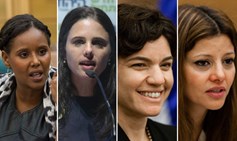
Women's Representation in the Knesset: Still Increasing But Not Fast Enough
Written By: Prof. Ofer Kenig
Dr. Ofer Kenig analyzes the predicted rate of representation of women in the 20th Knesset as compared to previous Knessets and as compared to the rate of women's representation in the parliaments of other democracies.
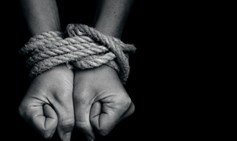
Who is Responsible for Finding a Solution to the Plight of Mesoravot Get?
Written By: Prof. Shahar Lifshitz
Prof. Shahar Lifshitz outlines what halakhic authorities and the Knesset can do in order to resolve the issue of get refusal, as discussed at the Second Agunah Summit.

The Israeli Municipal Elections 2013: Some Preliminary Findings
Written By: Nir Atmor, Dr. Dana Blander, Dr. Assaf Shapira
Dr. Nir Atmor, Dr. Dana Blander, and Assaf Shapira share some preliminary findings on voter turnout and women's representation in the Israeli municipal elections of 2013.

"Who Made Me a Woman": Women in Ultra-Orthodox Society
Written By: Lee Cahaner
A series of Hebrew videos on the historical processes behind the development of the role of ultra-Orthodox women in the family and society, which were developed as part of IDI's research projects on the Nation State and on the Integration of Haredim in Israeli Society.
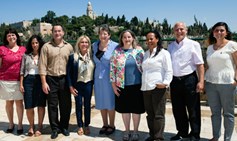
Women and Israeli Local Politics – A Natural Fit
Written By: Moran Nagid
More women than ever are running for Israeli municipal government in the local elections of 2013, but is it enough? Moran Nagid surveys the appeal of local politics for women and suggests a means of improving the situation.
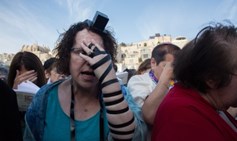
Israeli Public Opinion on the Women of the Wall
Written By: Prof. Tamar Hermann
IDI Senior Fellow Prof. Tamar Hermann, head of IDI's Guttman Center for Surveys, shares findings on the Israeli Jewish public's support of the right of the Women of the Wall to pray while wearing prayer shawls and phylacteries.
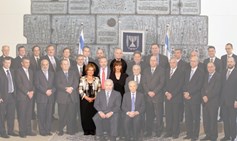
Time for More Women in the Israeli Cabinet
Written By: Prof. Ofer Kenig
IDI Researcher Dr. Ofer Kenig surveys the percentage of women in the Israeli cabinet since the founding of the State and calls for a change for the better.

Women’s Representation in the Knesset: Is it Sufficient?
Written By: Prof. Ofer Kenig
The 19th Knesset is expected to have a record number of women MKs. Nonetheless, the percentage of women in the Knesset is lower than that found in the parliaments of most other established democracies. IDI researcher Dr. Ofer Kenig provides an overview of the situation.

Faking Feminism
Written By: Debora Lederman-Danieli
The issue of the exclusion of women and their marginalization in Israeli society has dominated the media in Israel during the past few weeks. In this article, which was originally published in The Seventh Eye on December 25, 2011, Dr. Debora Lederman-Danieli argues that the media's struggle against the phenomenon of the degradation of women requires much more than disingenuous, populist outcries.

Women in the 18th Knesset
Written By: Prof. Ofer Kenig
IDI Researcher Dr. Ofer Kenig analyzes the results of the 2009 Israeli general election elections as they pertain to women's representation in the Knesset.

Women and Civil Society in Israel
Written By: Naomi Himeyn Raisch
In an article originally published in Hebrew in IDI's online journal Parliament, Naomi Himeyn Raisch surveys the unique characteristics of women's organizations and how they affect productivity in Israel.


